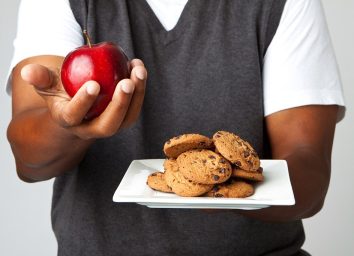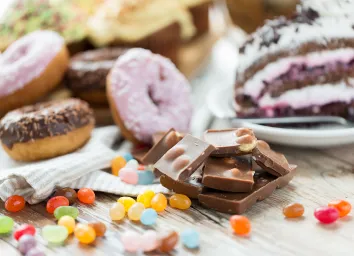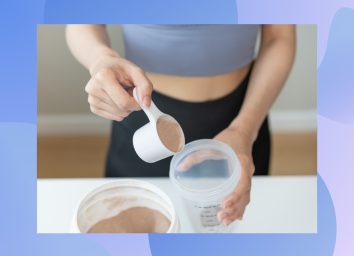The Best Foods to Eat in Every Decade of Your Life

It’s common sense that food is ultimately what keeps you strong, healthy, and functioning at peak performance for your best life ever. But what you ate in your twenties may not be what your body needs as you hit your thirties, forties, and fifties. From hormonal changes to bone density, things change from one decade to the next—and that’s putting it lightly.
Learning how to feed your body properly as you grow older can prevent diseases and other unnecessary complications from arising. The goal here is to live a long, happy, and healthy life, which is why we’ve identified the dietary building blocks to help you age well, one decade at a time! And if you’re looking for more of what else to turn to, stock up on The 7 Healthiest Foods to Eat Right Now.
20s: Protein
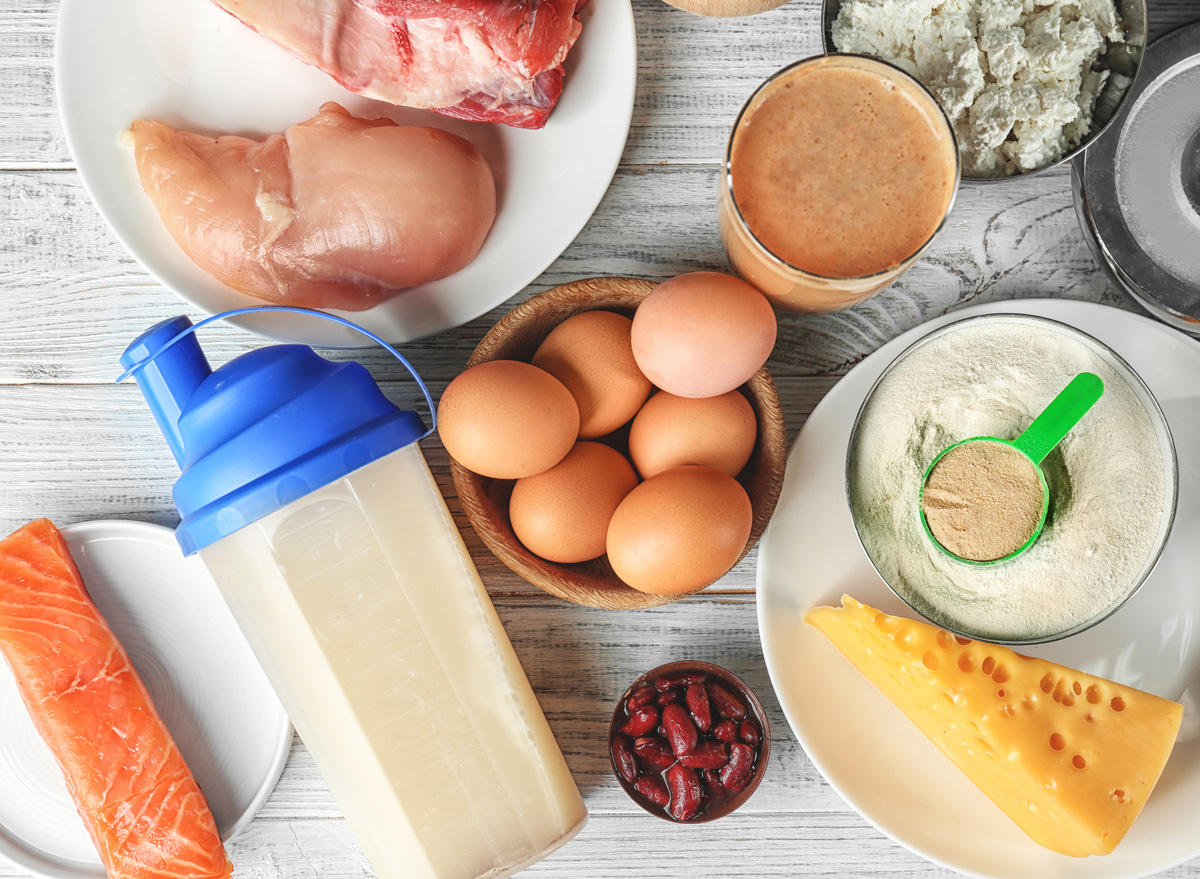
From chicken to steak to tofu, protein is an essential building block. “When you’re in your twenties, you’re still growing and often burning the candle at both ends,” explains yoga instructor and nutritionist Lola Berry. Protein helps you going—and growing. Check out our Ultimate Guide to Protein for everything you need to know about this favorite food.
Looking for more tips? Sign up for our newsletter to get the latest food news delivered straight to your inbox.
20s: Complex Carbohydrates

“Research supports that teenagers to 20-somethings should create adult habits—so it’s imperative to give the body all the nutrients it requires for optimum health,” explains Lisa Avellino, Fitness Director at NY Health and Wellness. “Complex carbohydrates like sweet potatoes, quinoa, and brown rice are great for sustainable energy, especially in your twenties when you’re super active.”
20s: Nuts and Seeds
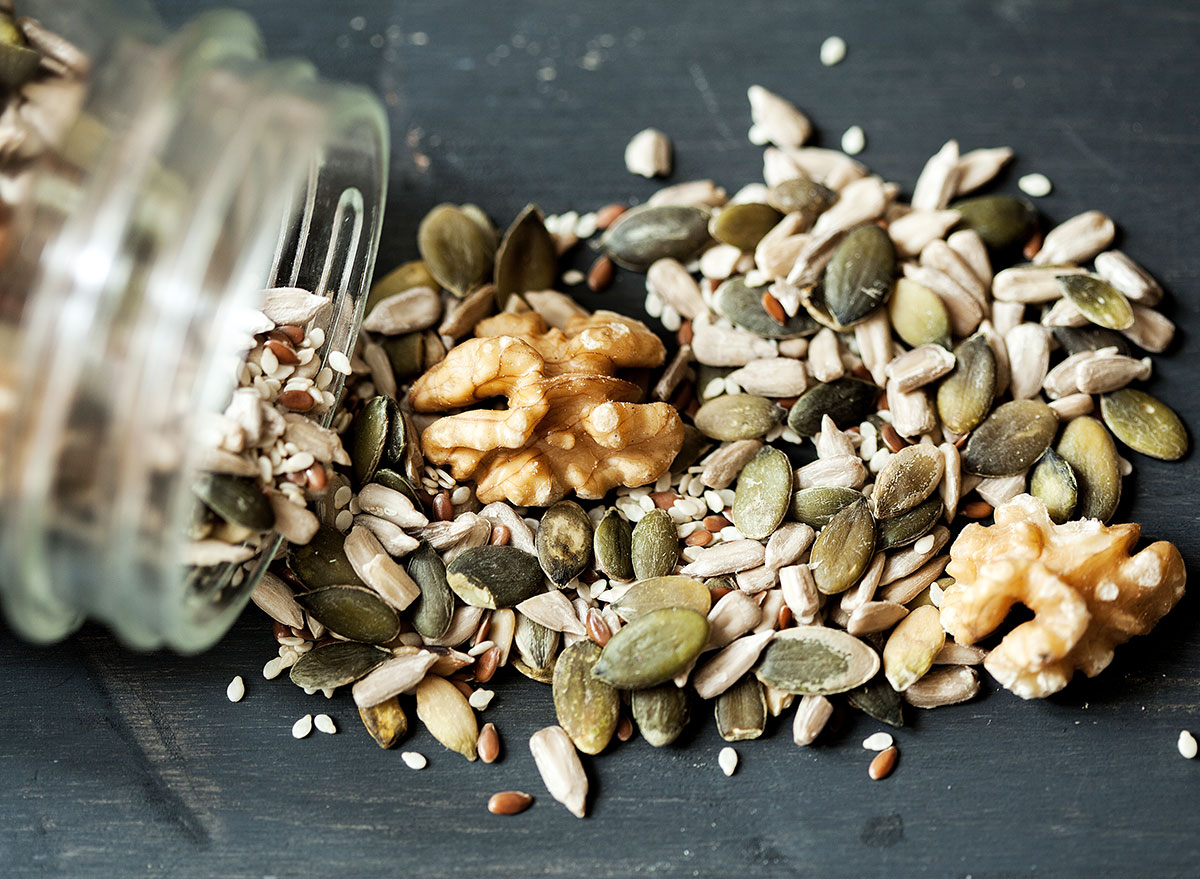
“A woman’s metabolic rate starts to slow between two and four percent per decade. Even though that means you’re still in top shape now, it’s wise to think about the changes you’ll go through as you age—and start thinking about those future healthy habits now,” explains personalized health expert Matt Riemann. “If you start in your fifties, it’s probably too late. Plus, until about 25 or so, your body is still building bone; so, to keep that bikini body and to continue to build the strong bones you’ll need to prevent osteoporosis 40 years from now, you’ll want to make sure you’re getting plenty of healthy vitamins and minerals from nuts and seeds. These are packed with everything you need, from vitamin A to zinc. Plus, there’s a healthy dose of antioxidants, fats, protein, and phytonutrients.” Here are 15 Nuts Better Than Protein Powder to choose from!
20s: Calcium-Rich Foods
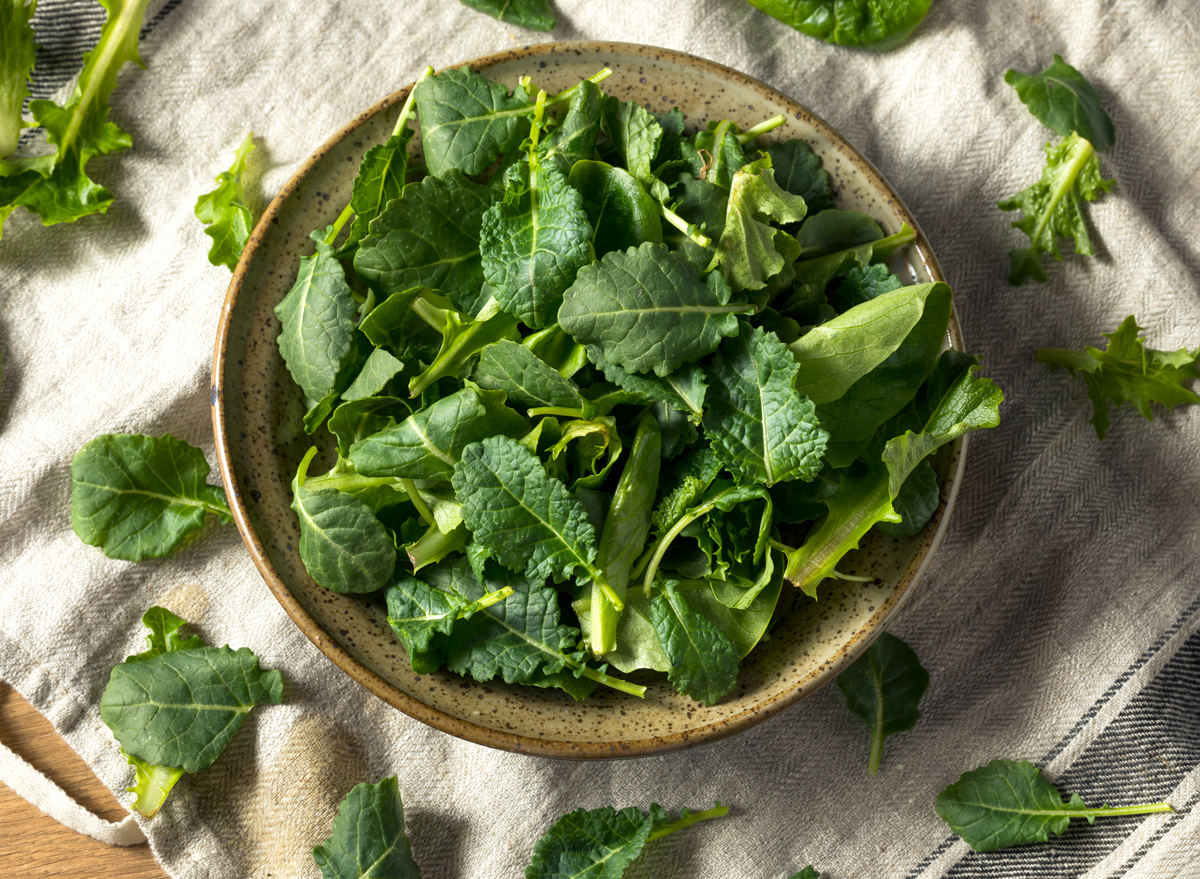
You need to think of your twenties as a time you’re “investing” in your health; what you eat in your diet now can have a direct impact on the state of your health in 30 years. “Calcium-rich foods will help strengthen your bones, which will help keep you active for the next 60 years,” explains Dr. Susan Albers, a nutrition expert and clinical psychologist at Cleveland Clinic. “Calcium-rich foods include sesame seeds, leafy dark greens, oranges, broccoli, and calcium-fortified foods like cereal and bread.”
20s: Hormone-Balancing Foods

“Your skin can take a hit when you’re active, stay up late, and go out frequently,” explains Albers. “Boosting your diet with foods that balance your hormones and keep you hydrated can make sure you glow and prevent blemishes.” Alberts recommends foods like blueberries, yogurt, walnuts, and oatmeal. We also like these 25 Healthy Foods That Give You Glowing Skin
20s: Liver Cleanses
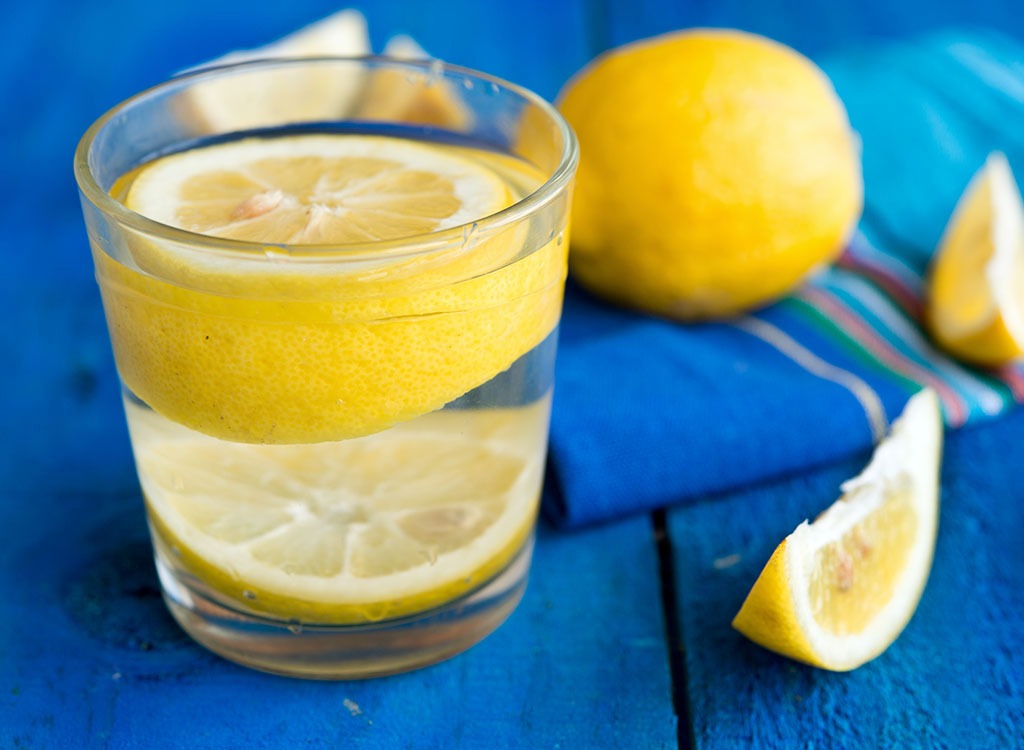
We get it—your twenties are about parties and schmoozing with friends over drinks. It’s a time in your life that you’ll never forget, but don’t let all that alcohol leave you with regret later on. “As alcohol becomes more available, so does the need to take care of the liver,” says Riemann. “Cleansing the liver with lemon juice, garlic, and onions can go a long way with keeping you healthy in the long run, despite the desire to enjoy the parties.” This doesn’t give you permission to just trust any so-called cleanse; here are 10 Signs a Juice Cleanse is Bogus.
20s: Iron
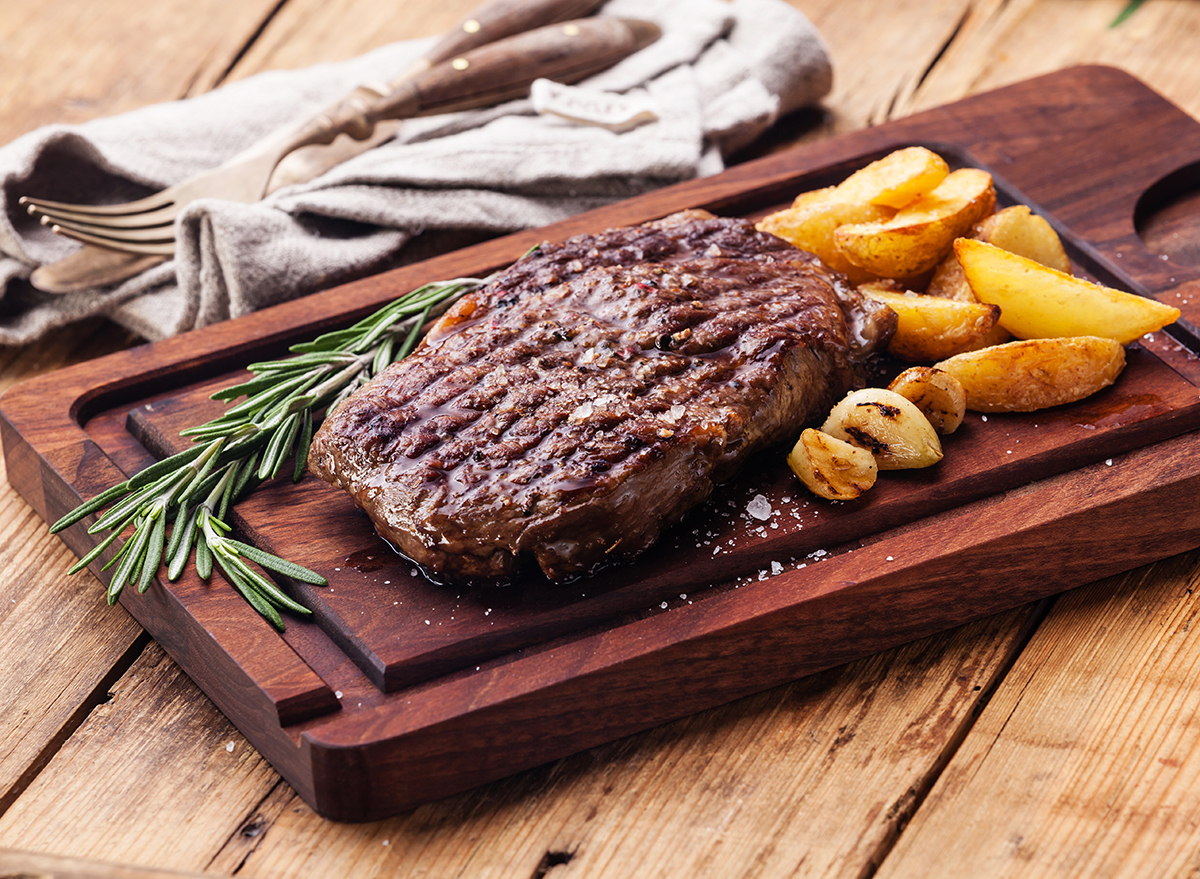
“Many women in their twenties are actually a bit deficient in iron, especially if they have heavy periods or are pregnant. You need iron to have healthy red blood cells; without it, you can become anemic and feel tired all the time,” explains Dr. Rob Silverman, DC of NY ChiroCare. “The RDA for iron for men is 8 mg, but for women, it’s 18 mg. Because it’s easy to overdose on iron, get it from food such as dried beans, eggs including the yolks, liver, lean red meat, poultry, salmon, tuna, oysters, almonds, tofu, and whole grains. A lot of popular breakfast cereals are fortified with iron. You can get about 9 mg from just a cup of Cheerios.”
30s: Bone Broth
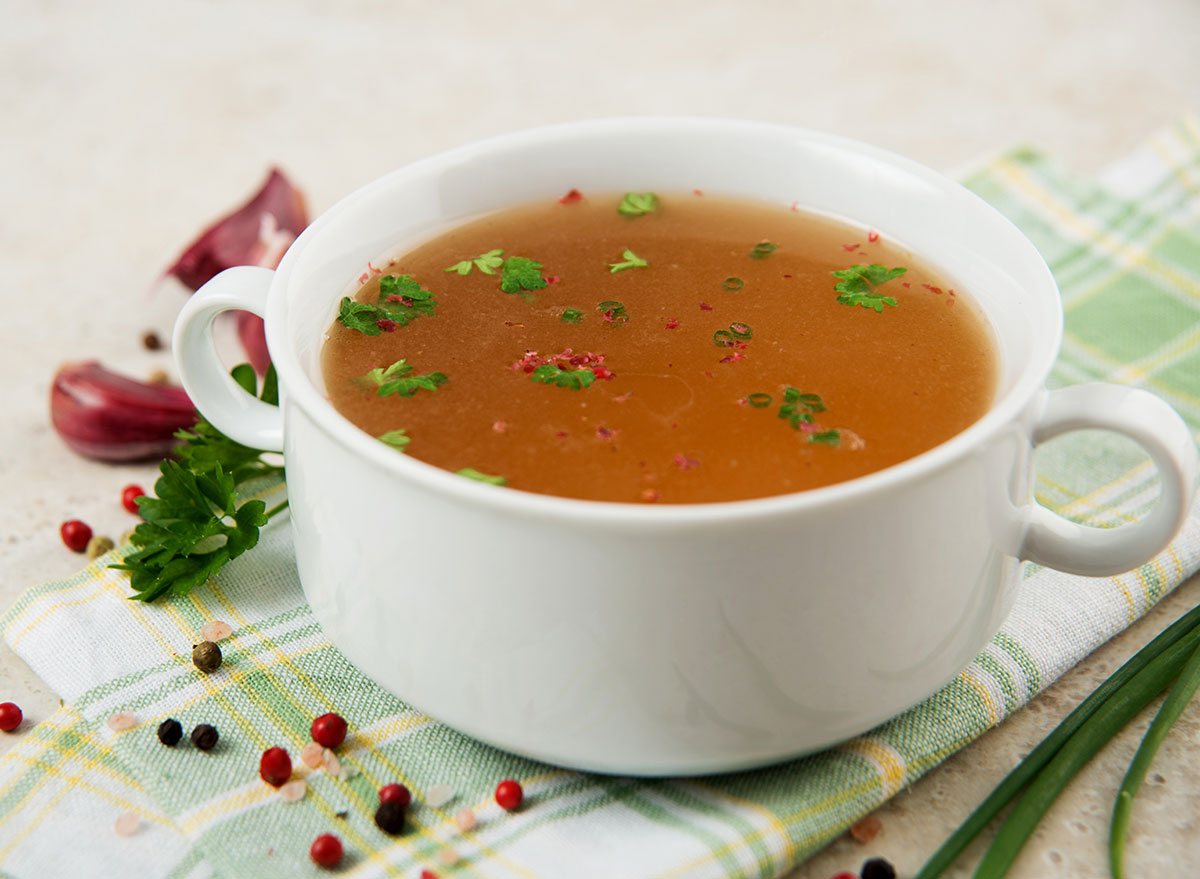
Your thirties are all about trying to maintain and strengthen the foundation you laid for good health in your twenties. One option that we have today that we didn’t know about a decade ago? Bone broth! “Bone broth supports a healthy gut, immune system, joint health, and helps to decrease cellulite,” says Monica Amsterdam CHC, AADP, FDN-P the director of nutrition at the Medical and Wellness Center of NJ. Find out what to do about your dimples with these 21 Best and Worst Foods for Cellulite.
30s: Super Foods

In your thirties, family, work, and brain management are pushed to the limit with all you have going on—especially as you try to find a balance for it all in your life. “Superfoods are essential, especially olive oil. They’re rich in polyphenols, which are powerful brain-protective antioxidants. Coconut oil, wild salmon, blueberries, turmeric, eggs, dandelion greens, and walnuts are all just the shortlist that yields peak performance benefits,” explains Avellino.
30s: Bok Choy
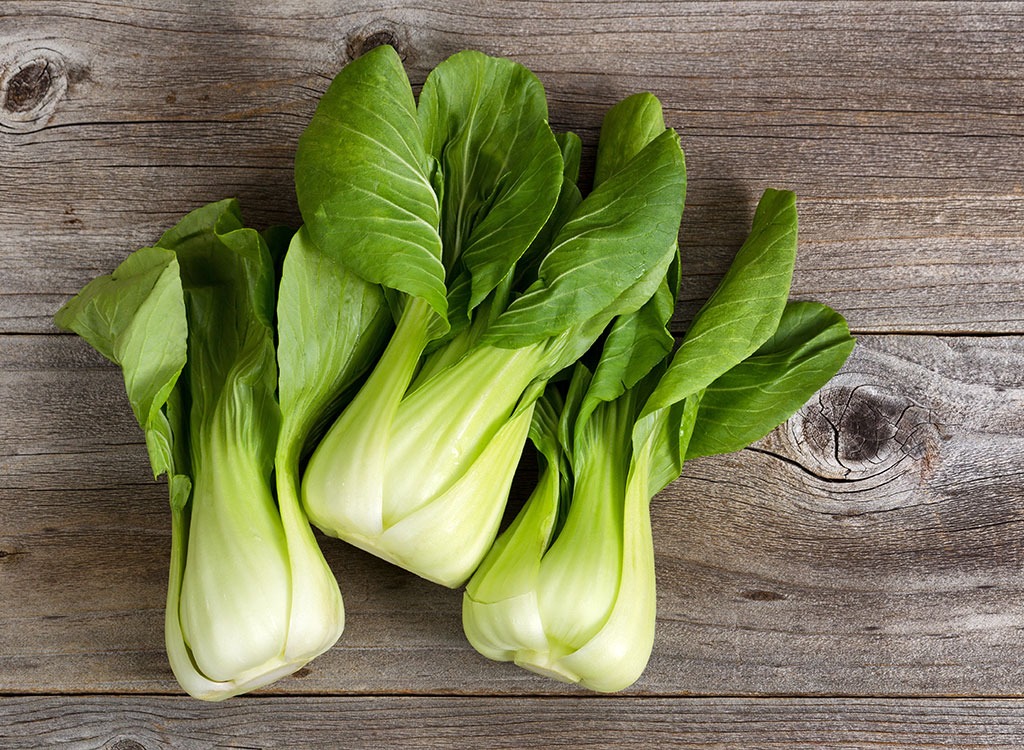
“Bok choy is low in calories, making this vegetable a winner for weight loss in your thirties,” says Amsterdam. “It keeps blood pressure in the normal range, improves digestion, is rich in folate, and is an important nutrient in pregnancy and breastfeeding.” Are you or someone you know expecting a baby? Our new book Eat This, Not That! When You’re Expecting, authored by America’s leading OB/GYN Dr. Jennifer Ashton, is now available. Get the doctor-recommended, trimester-by-trimester eating plan for baby and you!
30s: Antioxidants
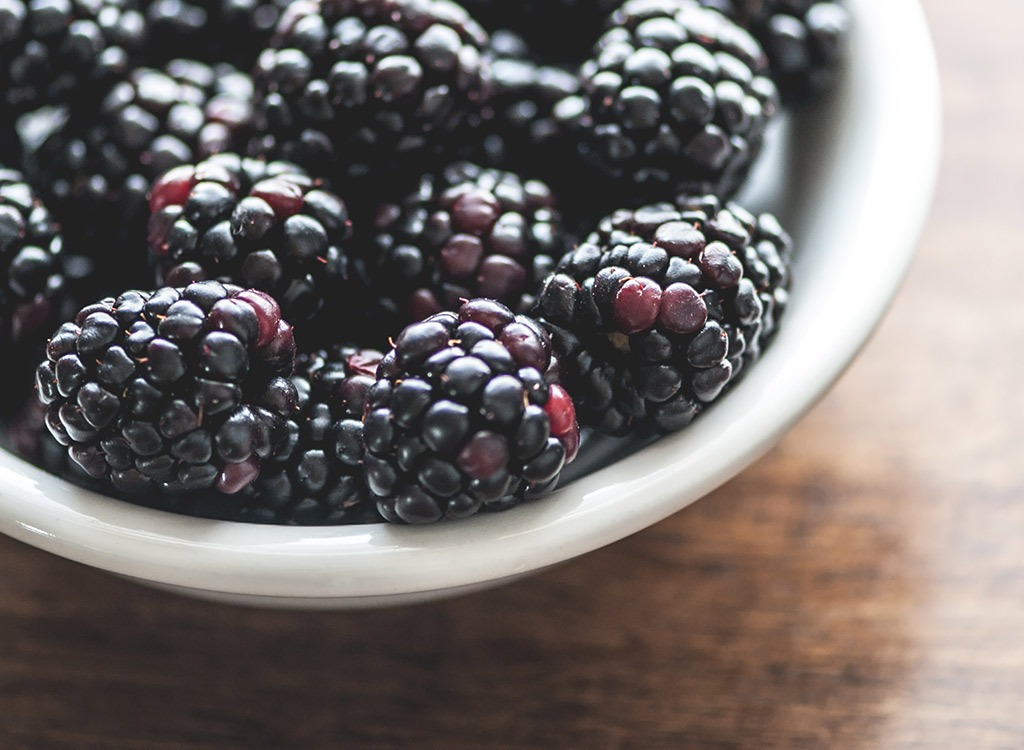
Gasp! We hate to be the bearer of bad news, but this decade is when you might start to see some subtle signs of aging—fine lines and gray hairs could start creeping up. “To keep this natural aging process as slow as possible, eat tons of antioxidants. Berries, tropical fruit, colorful vegetables, and green leafy vegetables are among the most antioxidant-rich foods you could grab to look and feel youthful,” recommends Riemann. And because the editors of EatThis.com are obsessed with nutrients, they’ve already pulled together this incredible list of 15 Most Antioxidant-Packed Fruits & Veggies—Ranked! You’re welcome.
30s: Fatty Fish and Eggs
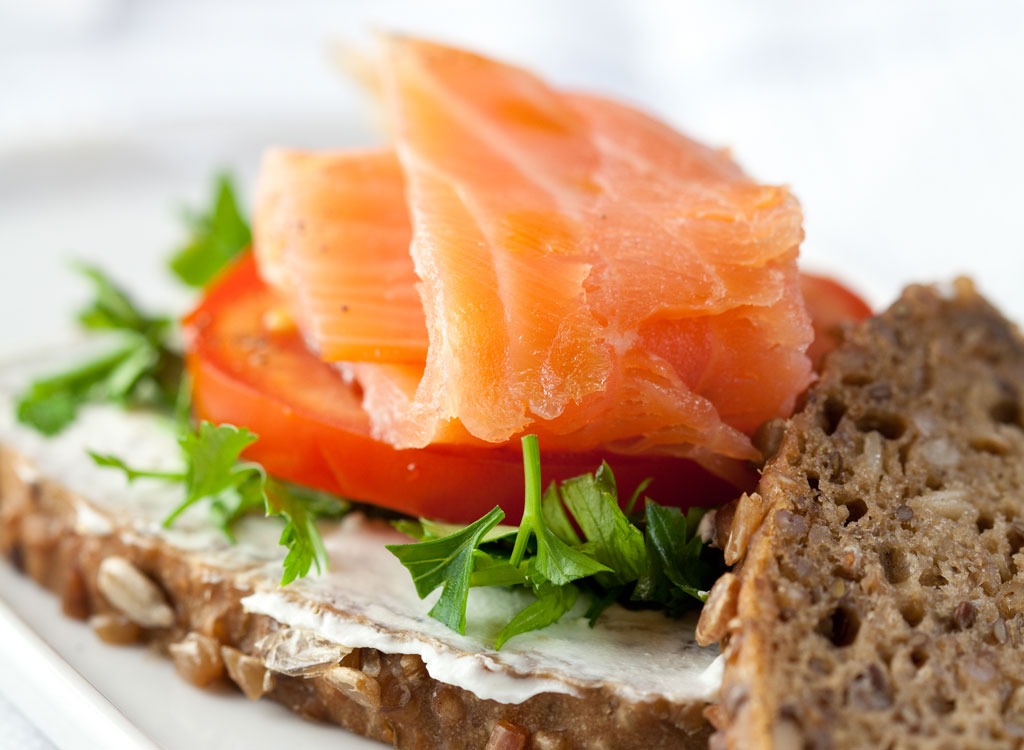
Experts say that once a man hits 30, his testosterone starts to drop by one percent each year. “So, foods that can promote the maintenance of balanced hormones are important,” says Riemann. “Fatty fish and eggs are filled with healthy fats and vitamin D, both of which can help boost your testosterone hormones.”
30s: Folic Acid
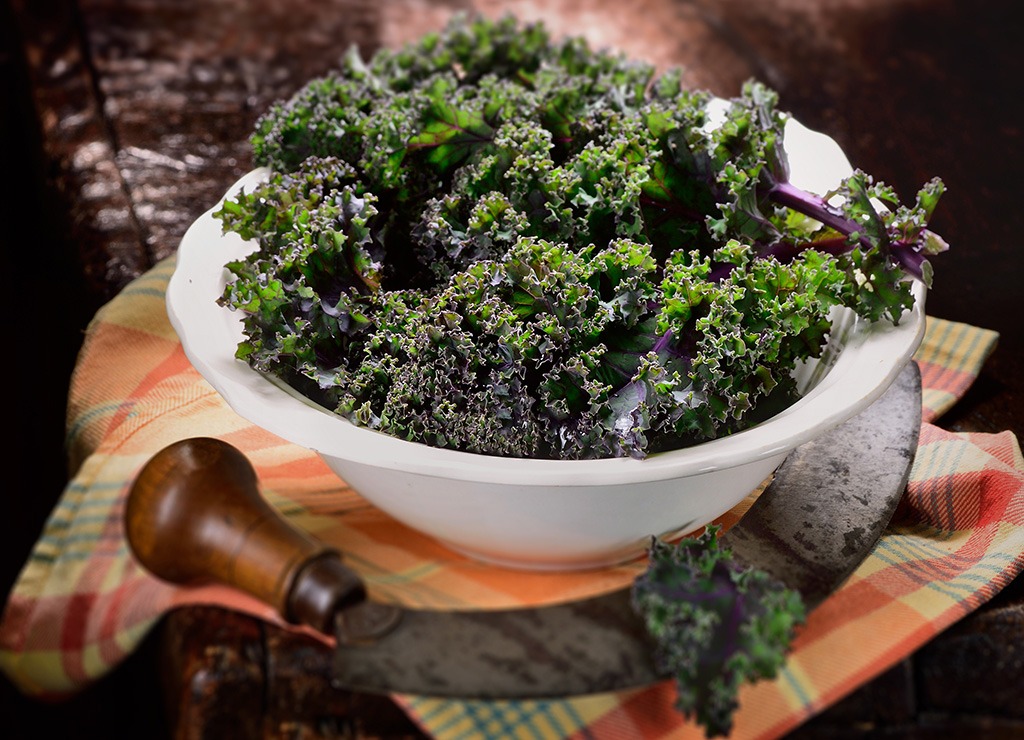
Your thirties may be a time when you’re thinking about starting a family and getting pregnant. In that case, iron and folic acid are key. Carol Cottrill, a nutritional consultant and author, recommends low-sugar fortified cereal, as they offer iron and folic acid in one bowl. (For lunch, have some leafy greens, which are full of folic acid and antioxidants!) As for the cereals, just don’t rely on these 20 Worst “Good for You” Cereals, okay?
30s: Low-Fat Dairy
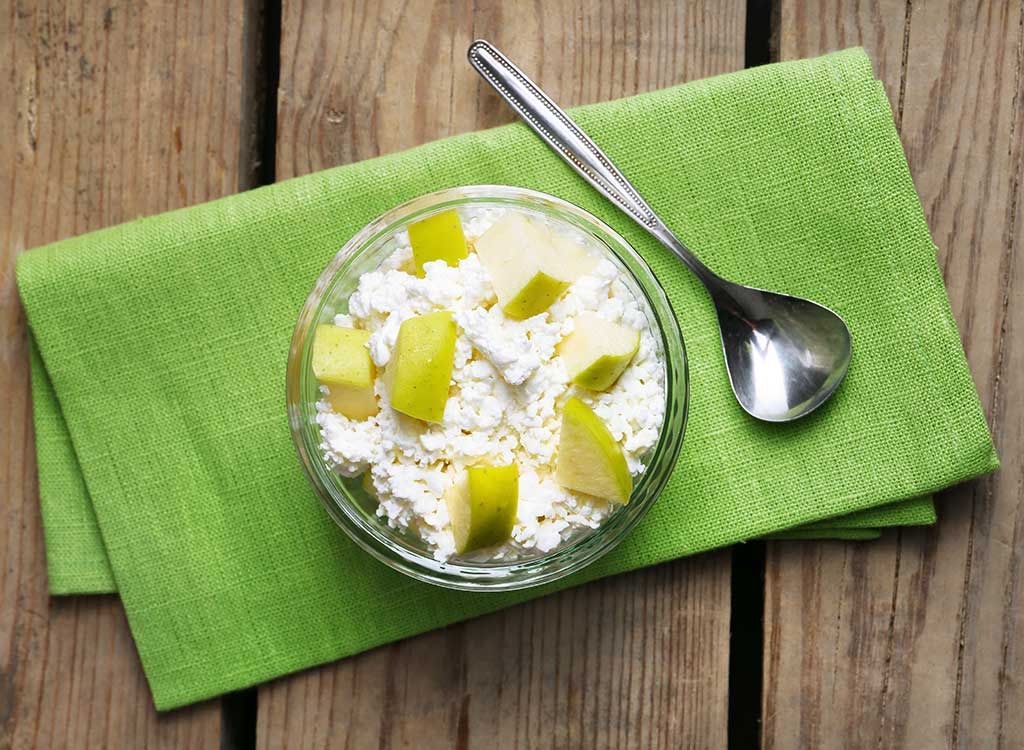
The bottom line is you start losing bone mass after 35—so it’s essential you consume enough calcium. Cottrill suggests low-fat choices like milk, cheese, yogurt and cottage cheese. And that cereal she suggested above for folic acid? Top that with milk to get the calcium you need along with it! Can’t stomach dairy? Then reach for these 20 Best Calcium-Rich Foods That Aren’t Dairy.
30s: A Rainbow of Veggies
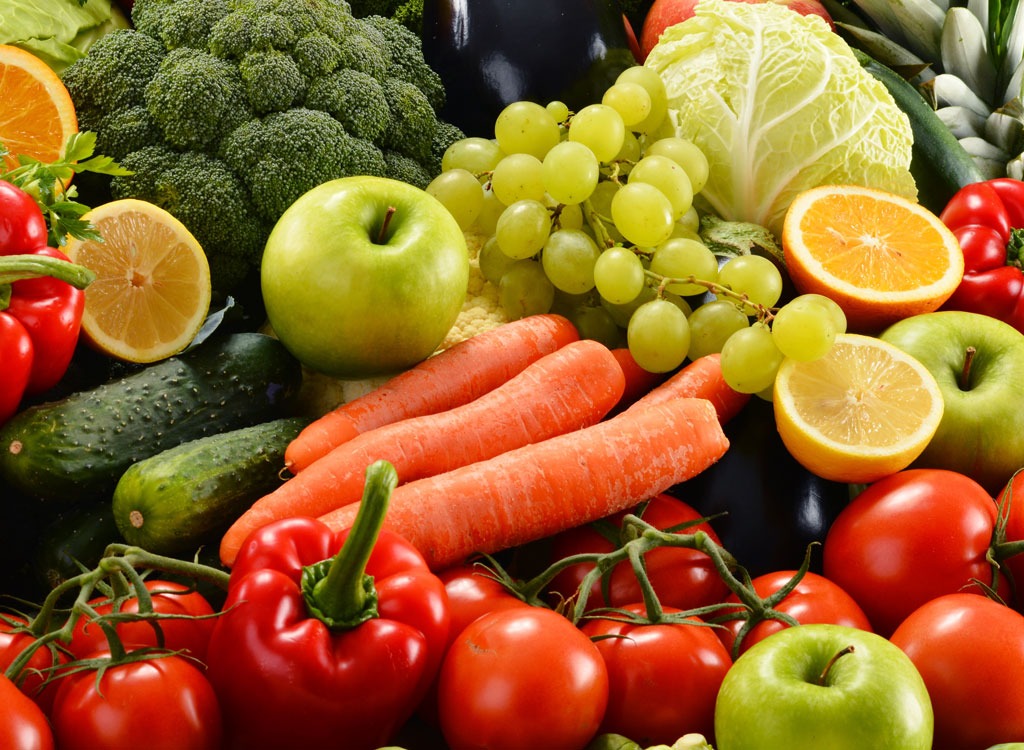
“Our thirties are when we begin to see a decline in our metabolism, so we must account for it. Our stress levels also tend to be a bit higher as we marry, begin families, and further our careers,” explains Darin Hulslander, CEO of DNS Performance & Fitness. “Consider meditation or yoga on a daily basis; both can help combat some of the issues with stress, such as high cortisol levels and fat storage from stress. Eat lots of colorful veggies to ensure your bodies can still handle this at their peak.”
30s: Vitamin E
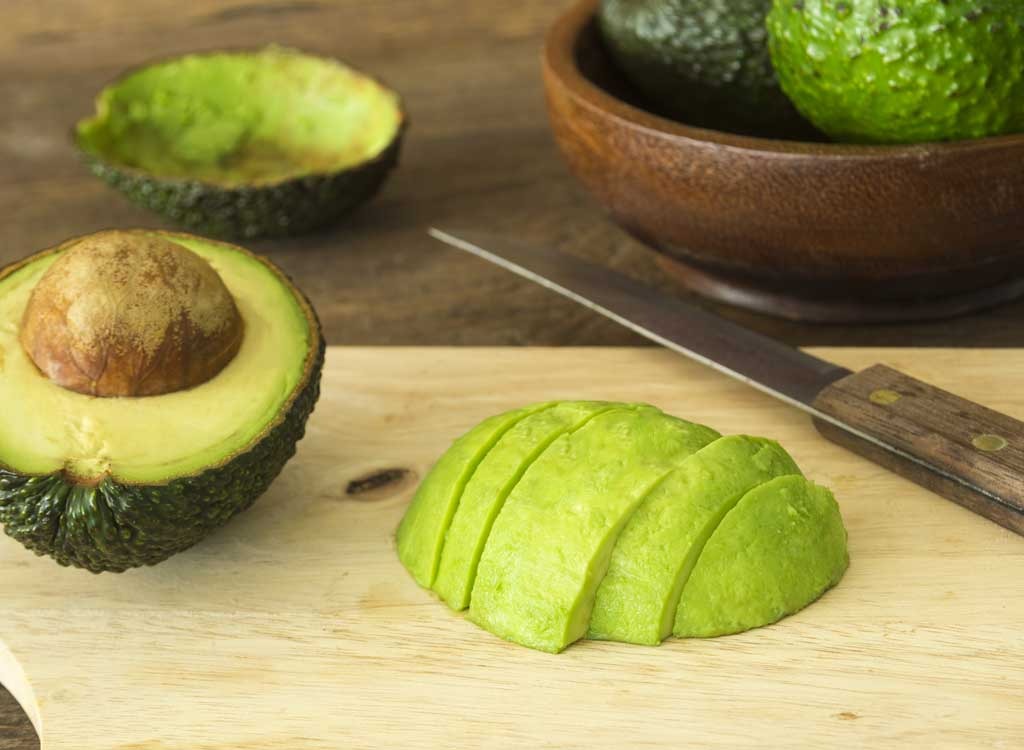
Again, conceiving a child is something many women in their thirties are thinking about if they haven’t started a family already. Vitamin E is essential for fertility in male and females. “Avocados and pine nuts are rich in vitamin E, which is important for reproduction,” says Amsterdam. “They increase male fertility and reduce the risk of miscarriages because they help to regulate the menstrual cycle.”
40s: Fermented Foods
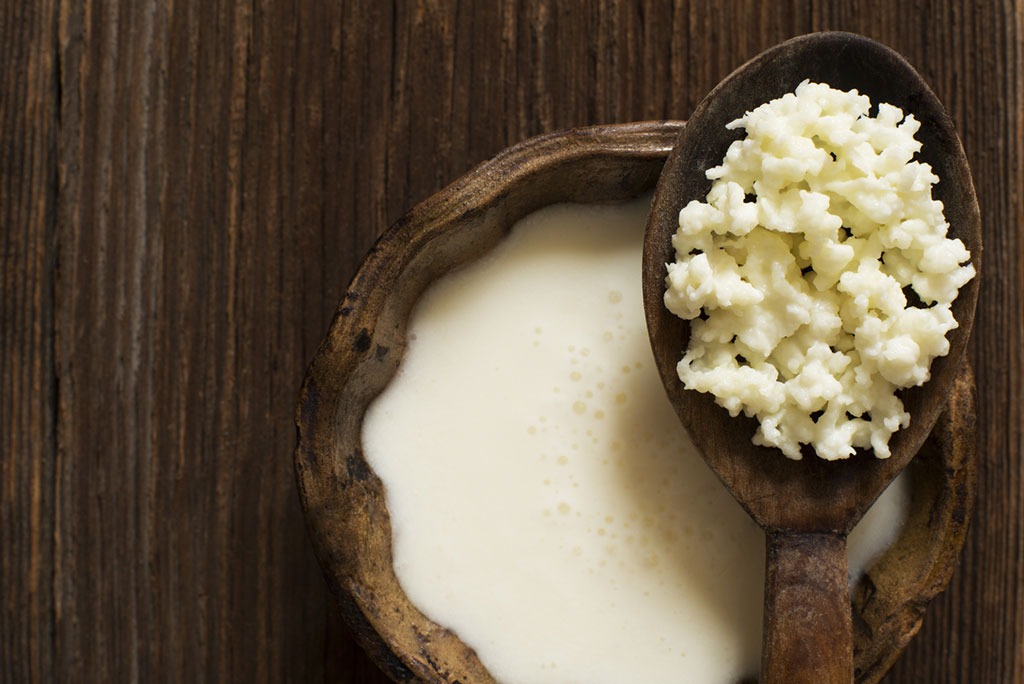
Your forties are when digestive problems can start to show up, especially if your long-time diet has included a lot of processed foods. A good way to combat that according to Dr. Silverman? Fermented foods, which naturally contain beneficial bacteria to your diet. “A daily serving of sauerkraut, kimchi, kefir, sour pickles, kombucha, or live culture yogurt can help balance your gut bacteria,” he says. “I also suggest starting a daily probiotic supplement to keep the beneficial bacteria in your gut working well to help digest your food. Choose a probiotic from a company that uses good manufacturing practices. The supplement should have a mix of different strains of bifidobacteria and lactobacillus bacteria.”
40s: Natural Phytoestrogens
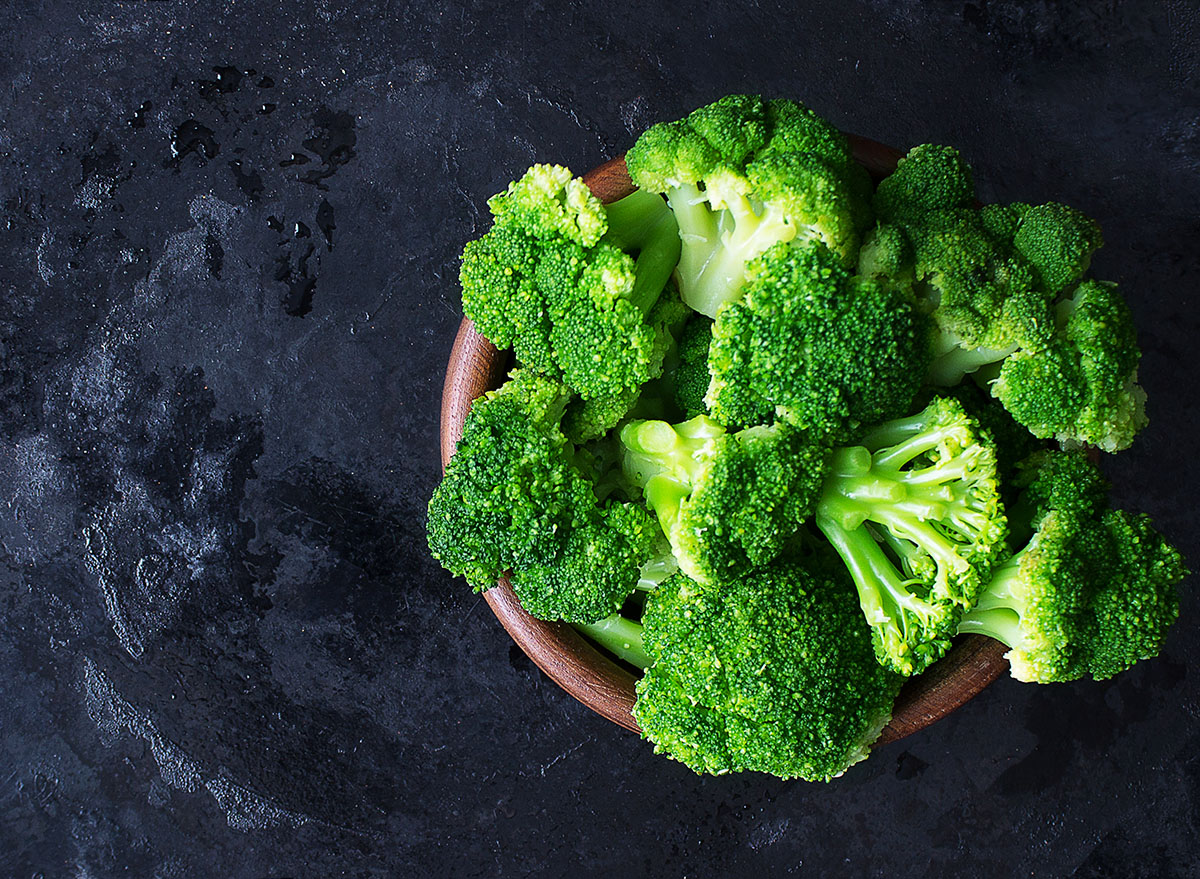
By the time you reach your forties—and as long as you haven’t had breast cancer or some other condition that would encourage you to keep your estrogen levels low—Riemann suggests eating more foods that are natural phytoestrogens (plant-based estrogen) like soy and cruciferous vegetables. “They could help with keeping those hormones balanced as you age.”
40s: Bright Foods and Veggies
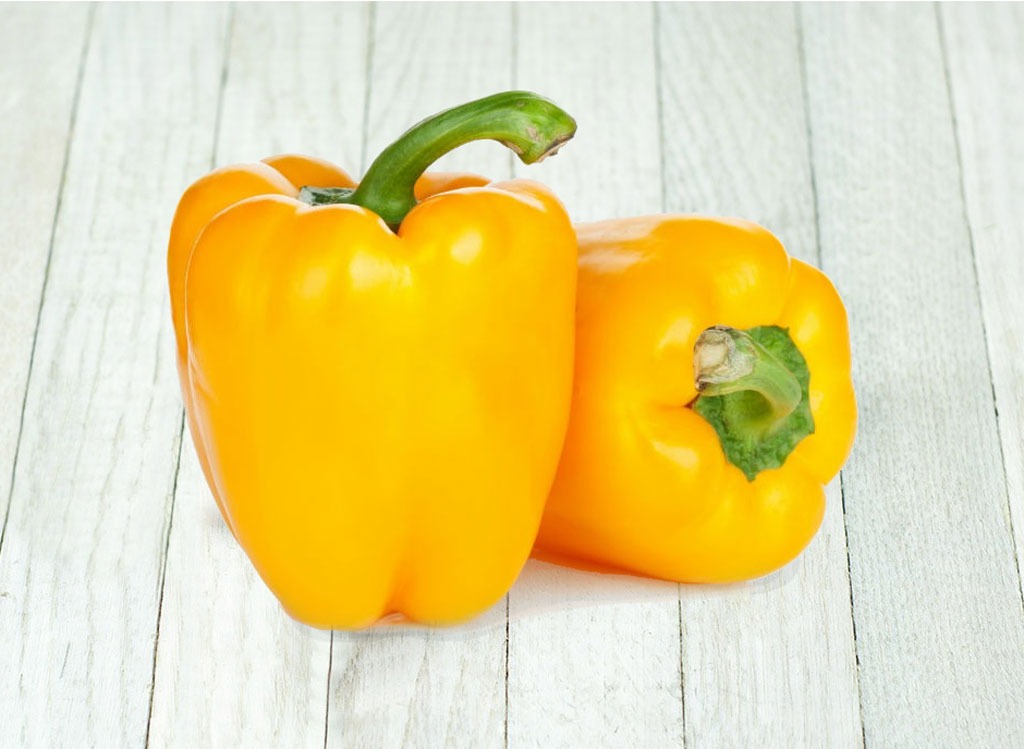
In your forties, you need antioxidants to prevent aging and to promote skin elasticity. According to Berry, an easy way to get them in is by eating tons of colorful fruits and veggies. And as a rule of thumb, the brighter the fruit or veggie, the more antioxidants. So, think blueberries, strawberries, oranges, beets, peppers, and more! Some of these are also on our list of 18 Health Foods with Big Beauty Benefits!
40s: Heart-Healthy Foods
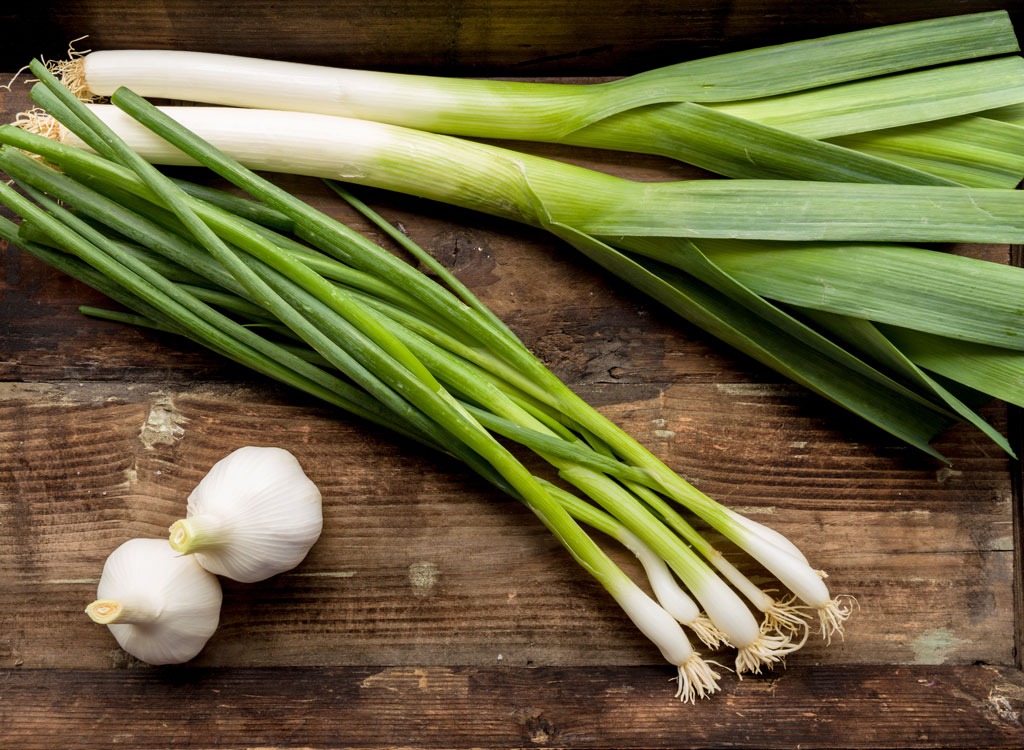
“Unfortunately, people begin to experience an exponential rise in the risk of heart disease at this point in their lifespan, so it’s important to eat foods that promote a healthy cardiovascular system,” says Riemann. “Garlic, onions, leek, turmeric, olives, flax seed oil, and green leafy veggies are among the best foods for this.”
40s: Whole Grains
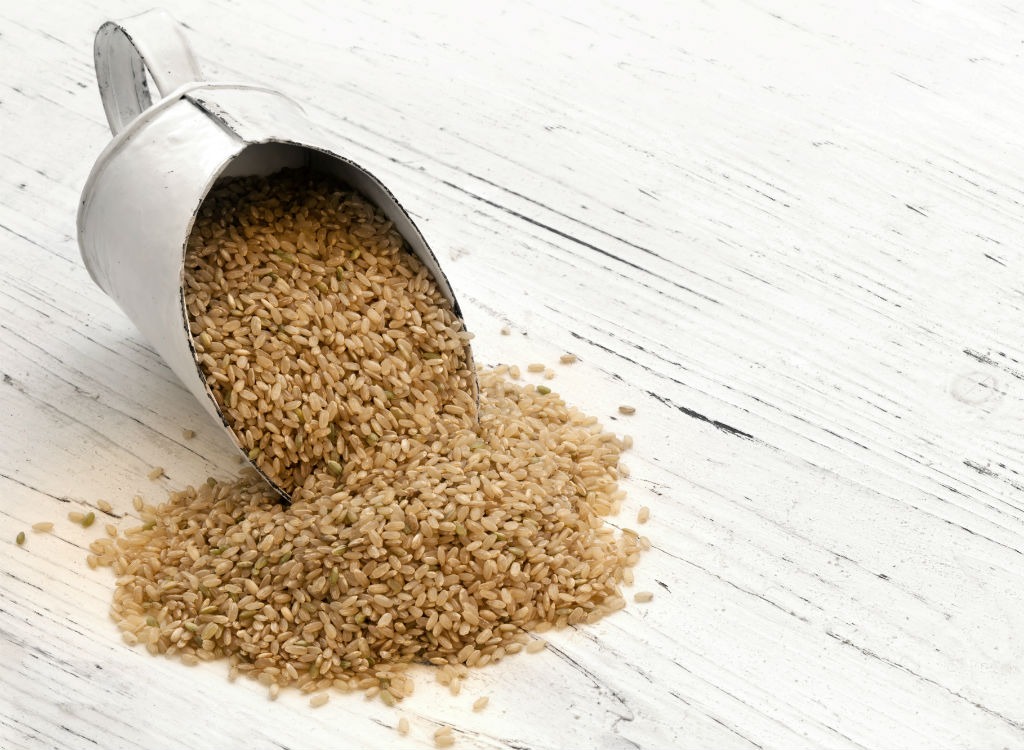
Unfortunately, weight management can become more difficult in your forties. As you age, your metabolism slows, so portion control and nutrient-dense foods become more important. You may even need to add more exercise into your schedule—especially weight training to build muscle mass and metabolize calories more efficiently. Cottrill recommends eating unrefined whole grains like whole wheat, brown rice, and oats to help keep blood pressure and cholesterol in check. “They help digestion and make you feel full on less food,” she says. “And you’ll enter your fifties in great shape.” We recommend whipping up some wholesome (but so easy!) overnight oats.
40s: Omega-3
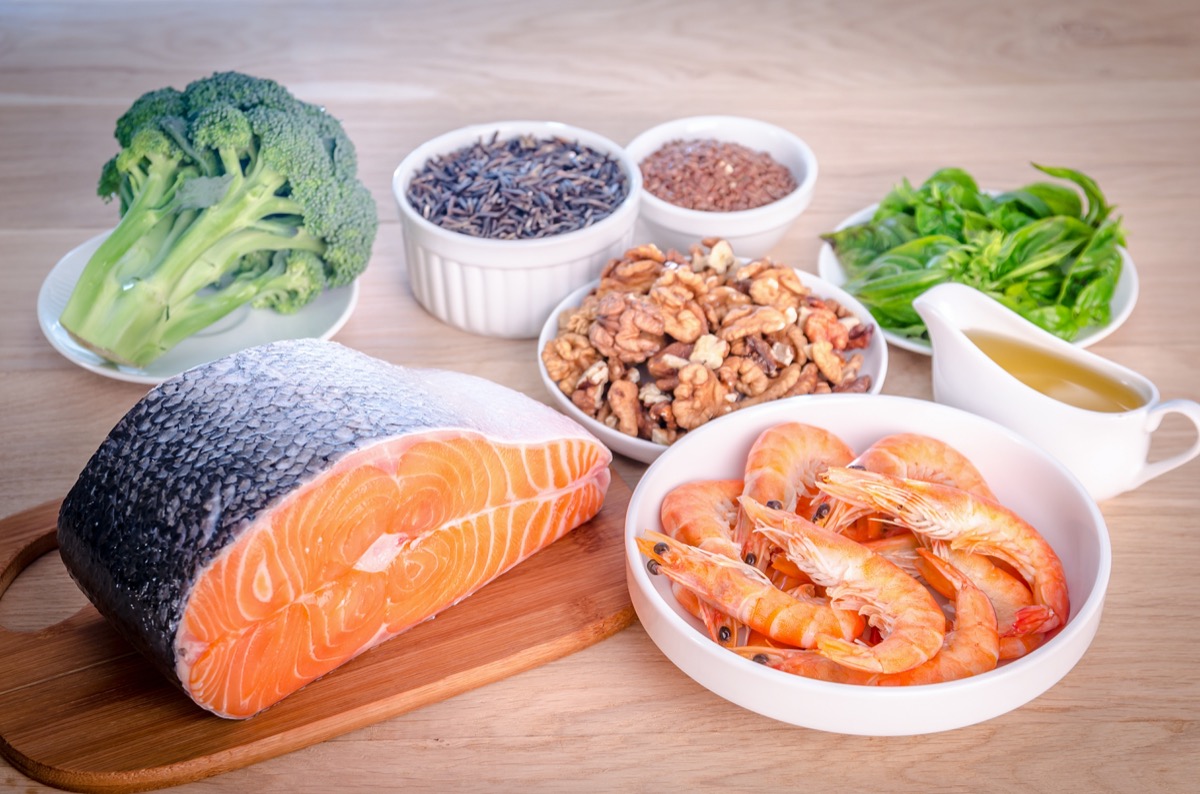
Huslander says this is the decade when we’ll start to experience more inflammation from a cellular level all the way to our joints. “Ensure adequate omega-3 intake to control inflammation and to keep your body performing at its peak,” Huslander says. “I recommend 3g-5g of liquid fish oil daily to control this.”
40s: Artichokes
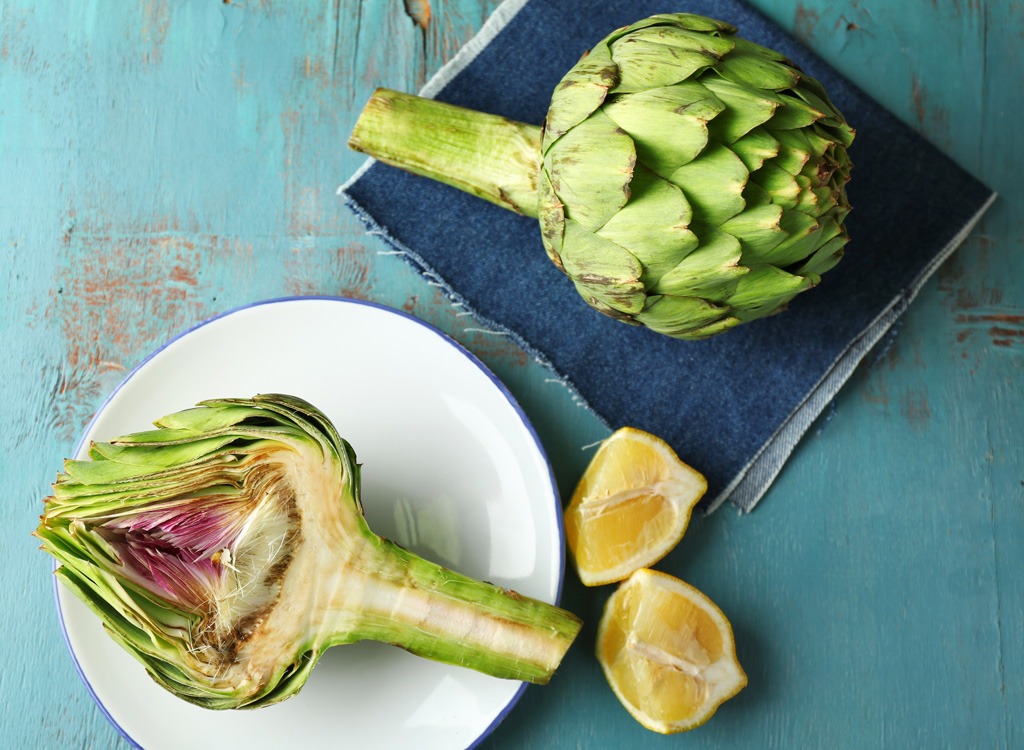
“Artichokes purify and protect the liver. They also have a mild diuretic effect on the kidneys, which aids in toxin removal once the liver breaks them down,” explains Amsterdam. “Some studies have shown that artichokes may actually regenerate liver tissues.” They’re also high in fiber, which is always good for elimination. Do you know about these 30 Foods With More Fiber Than an Apple?
40s: Seaweed and Sunflower Seeds
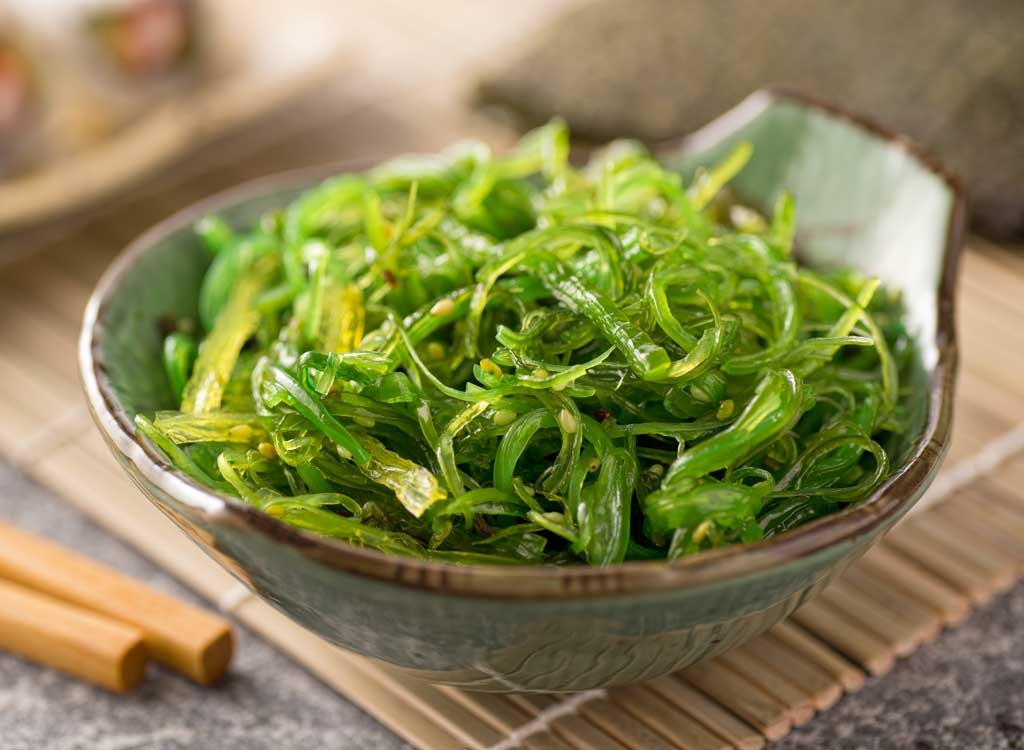
Both seaweed and sunflower seeds have important nutrients for your thyroid function—and more. “Seaweed is rich in iodine, which is important for thyroid function,” explains Amsterdam. “Sunflower seeds are rich in vitamin E, folate, selenium, and magnesium, making these delicious seeds fantastic for cardiovascular health, mental health, and thyroid health.” Sounds good to us!
40s: Coconut
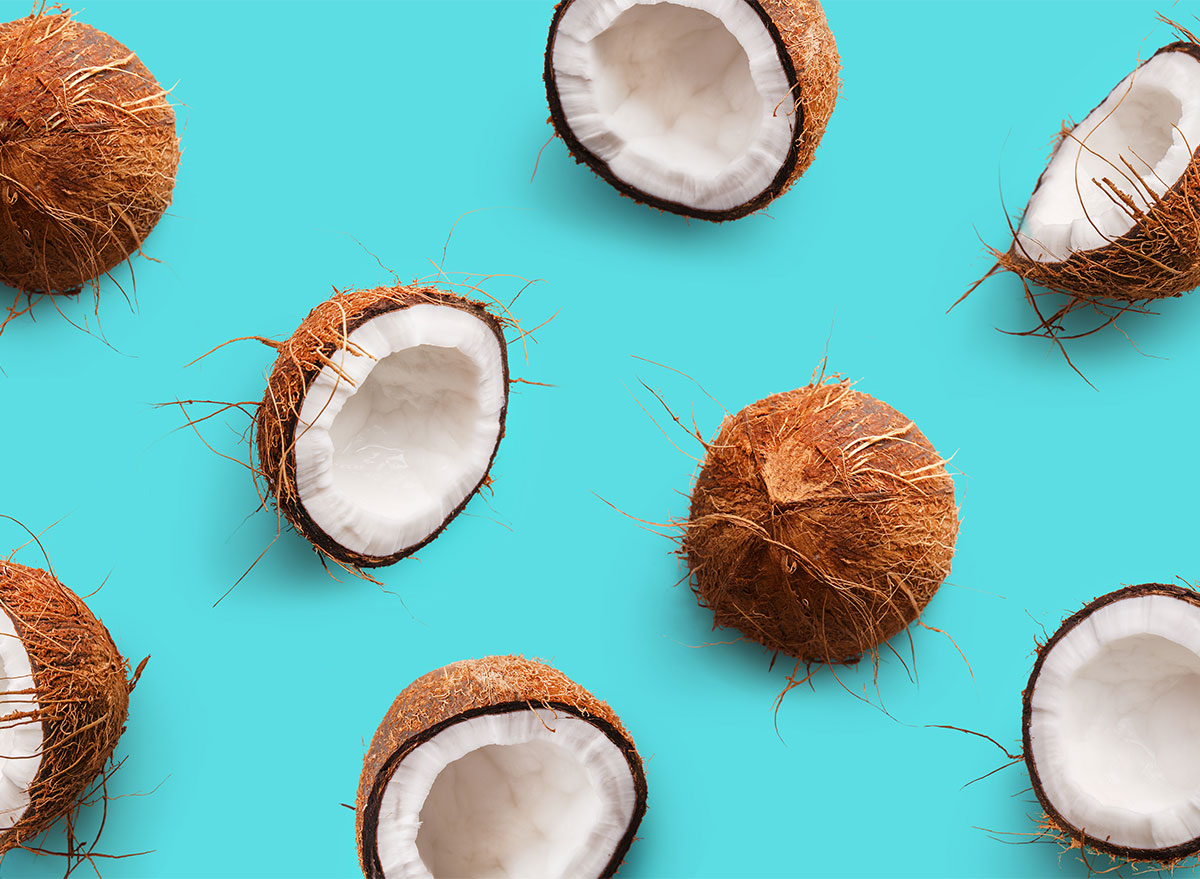
Coconut is a multifaceted food that, according to Amsterdam, can provide many essential nutrients in your forties. “It’s rich in fiber, helps to fight Candida Albicans, fungi viruses, and bacteria, and the fatty acids in coconut can boost brain function.” Worried about staying sharp? Try these 15 Ways to Train Your Brain!
50s: High Fiber Veggies
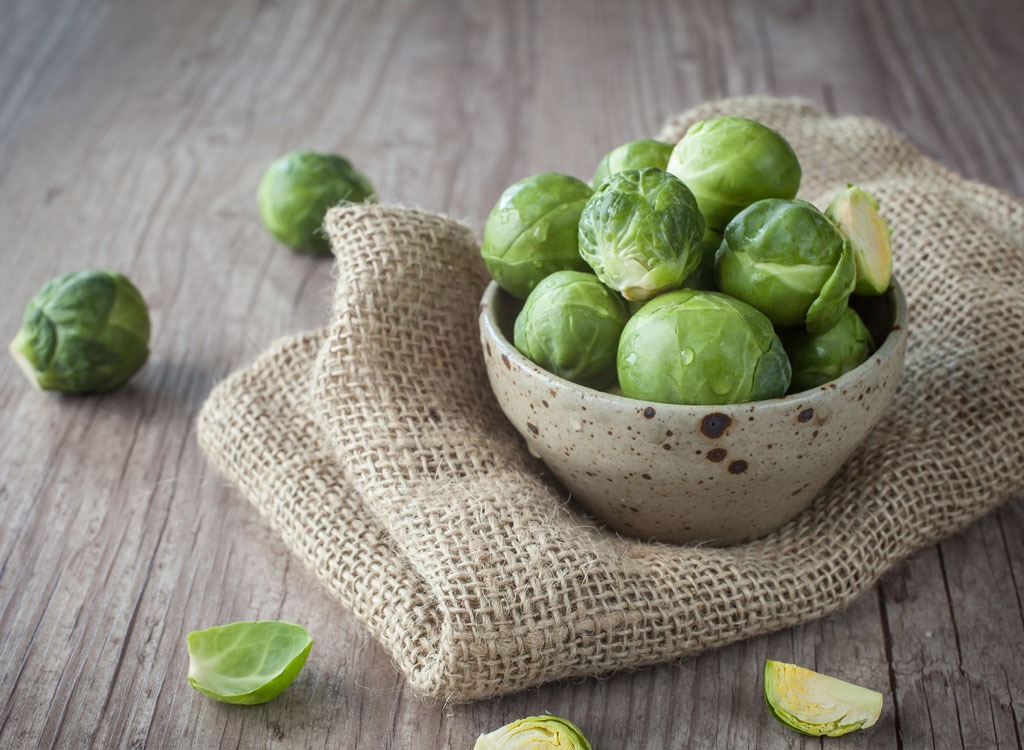
In your forties and fifties, the body’s requirements during perimenopause and menopause for women and man-o-pause for men require an increase in calcium-rich foods, as well as hormone-balancing meals. “To balance hormones, such as leptin, the diet must contain high fiber vegetables to stabilize leptin levels by making you feel full longer. They’ll balance cortisol, vitamins, minerals, antioxidants,” explains Avellino. “The fiber found in cabbage, broccoli or Brussel sprouts help stabilize blood sugar and insulin by slowing down digestion.” Speaking of menopause, find out the 25 Best Foods for Menopause!
50s: Turmeric
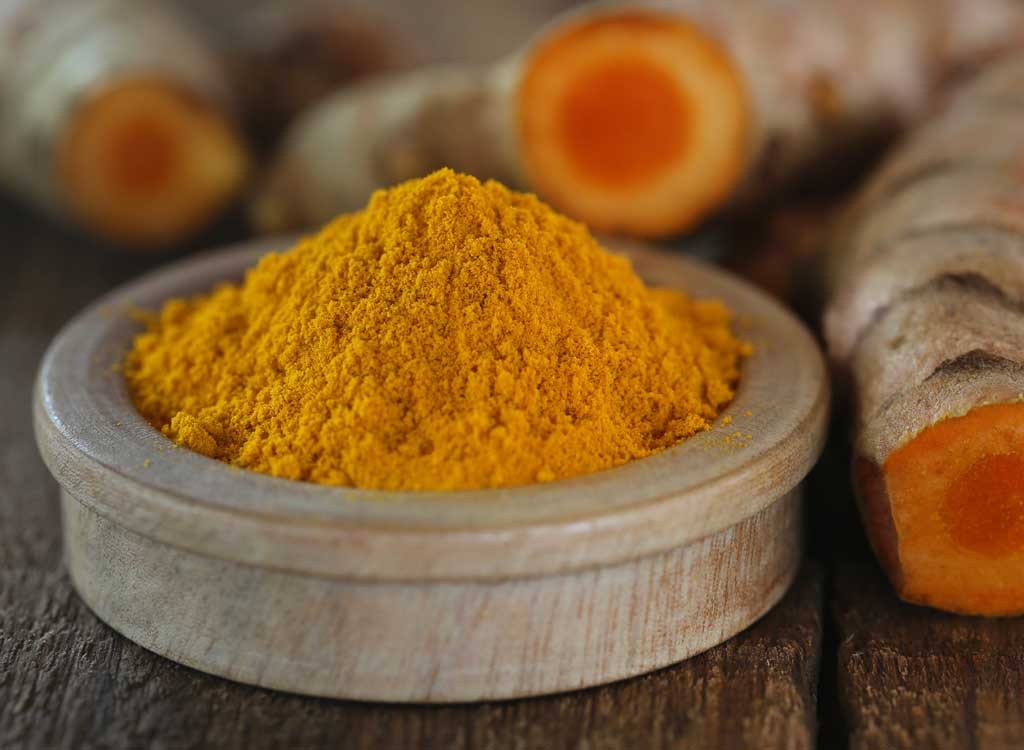
“Turmeric is the best food to eat at all times in your life, but particularly in your forties and fifties because it supports an anti-inflammatory lifestyle,” explains Glenn McElfresh, founder of GoldenChai.com. “Many studies indicate inflammation may play a role in causing and exacerbating diseases such as Alzheimer’s, cancer, and diabetes.”
50s: Zinc
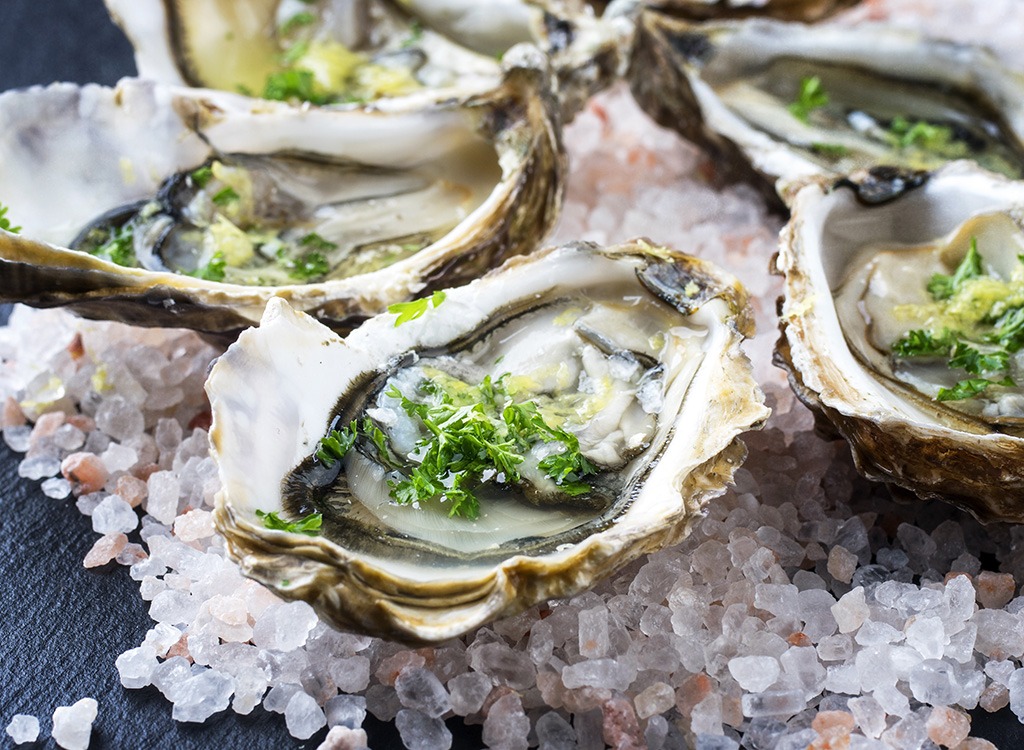
“Foods high in zinc helps to balance hormones,” explains Berry. So go for oysters, crabs, lobster and even cashews. Another great option according to Berry? The superfood maca powder that you can easily just pop into your morning smoothie creations.”
50s: Plant-Based Protein
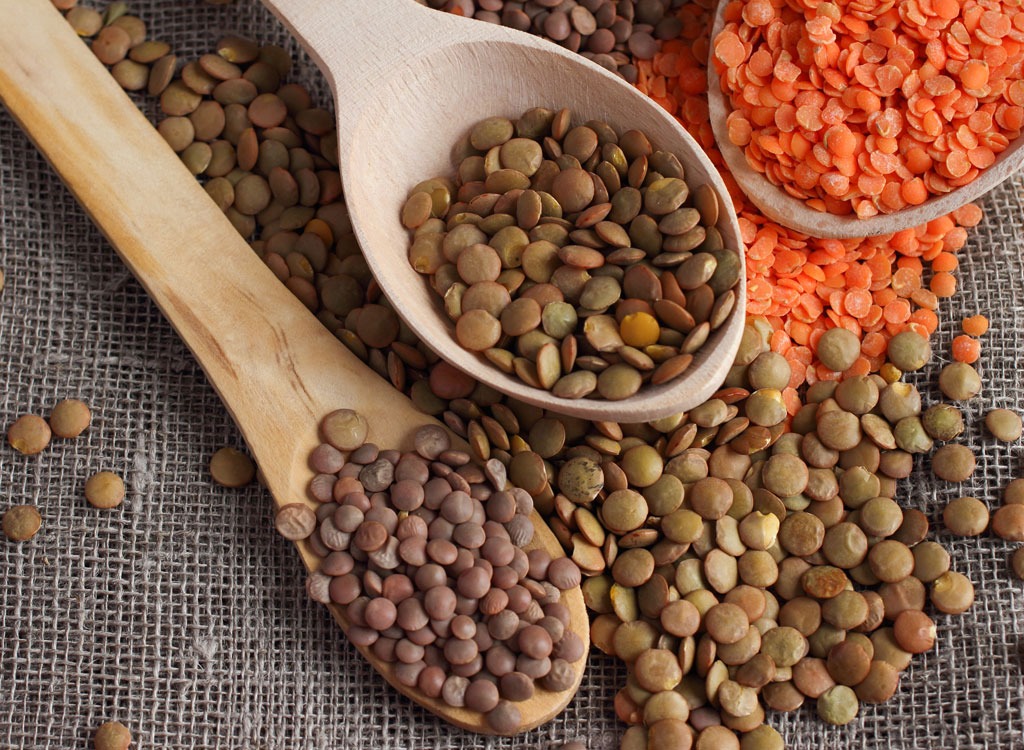
“Animal protein can slow metabolism, but protein remains an important element for health and longevity,” explains Riemann. “So, decreasing animal protein and increasing plant protein can be a great way to give your body what it needs. Whole grains, lentils and beans provide some of the best sources of plant-based protein, as well as an array of healthy nutrients. These are also filled with healthy minerals that will help keep bones strong.” The experts behind the Eat This, Not That! team have also determined The Best and Worst Protein Powders to help you scoop the very best plant-based protein into your morning smoothies!
50s: B-Vitamins
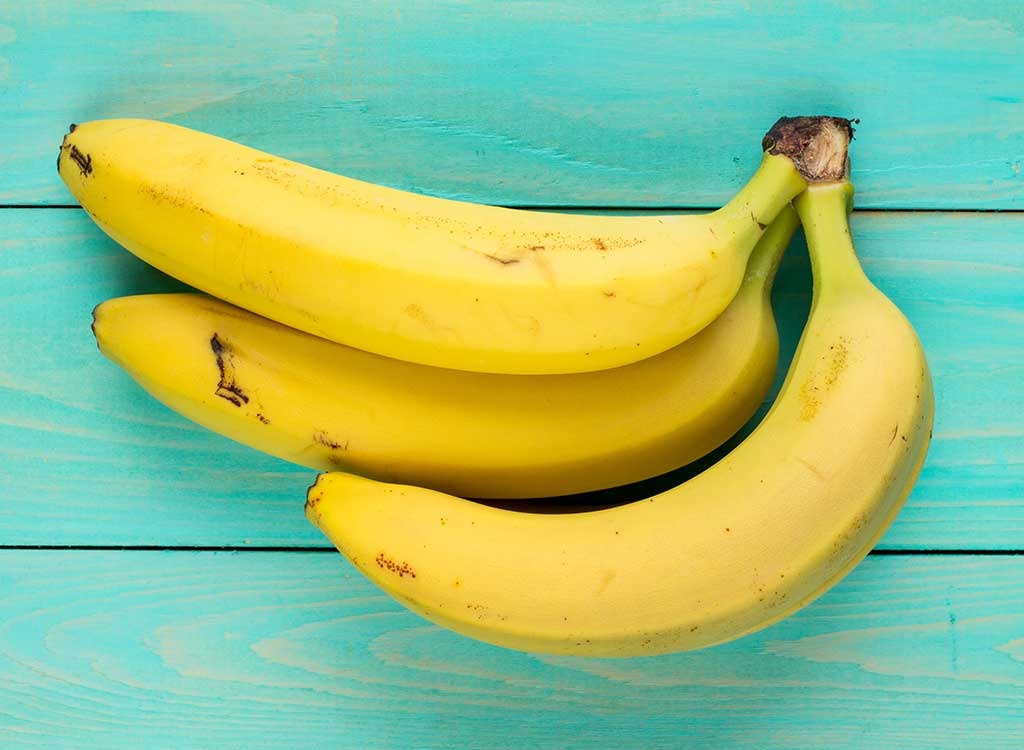
“You think that by your fifties you’d be in control—just try and tell your hormones that!” says Cottrill. “This is when foods full of B-vitamins, antioxidants, calcium, and vitamin D can help level things out. Junk food is out and healthy whole foods are in!” Good options that are rich in B6 and that can help prevent heart disease include bananas, potatoes, and pomegranates. Meanwhile, eggs, fish, and chicken are high in B12 and support a healthy nervous system.
50s: Eggs
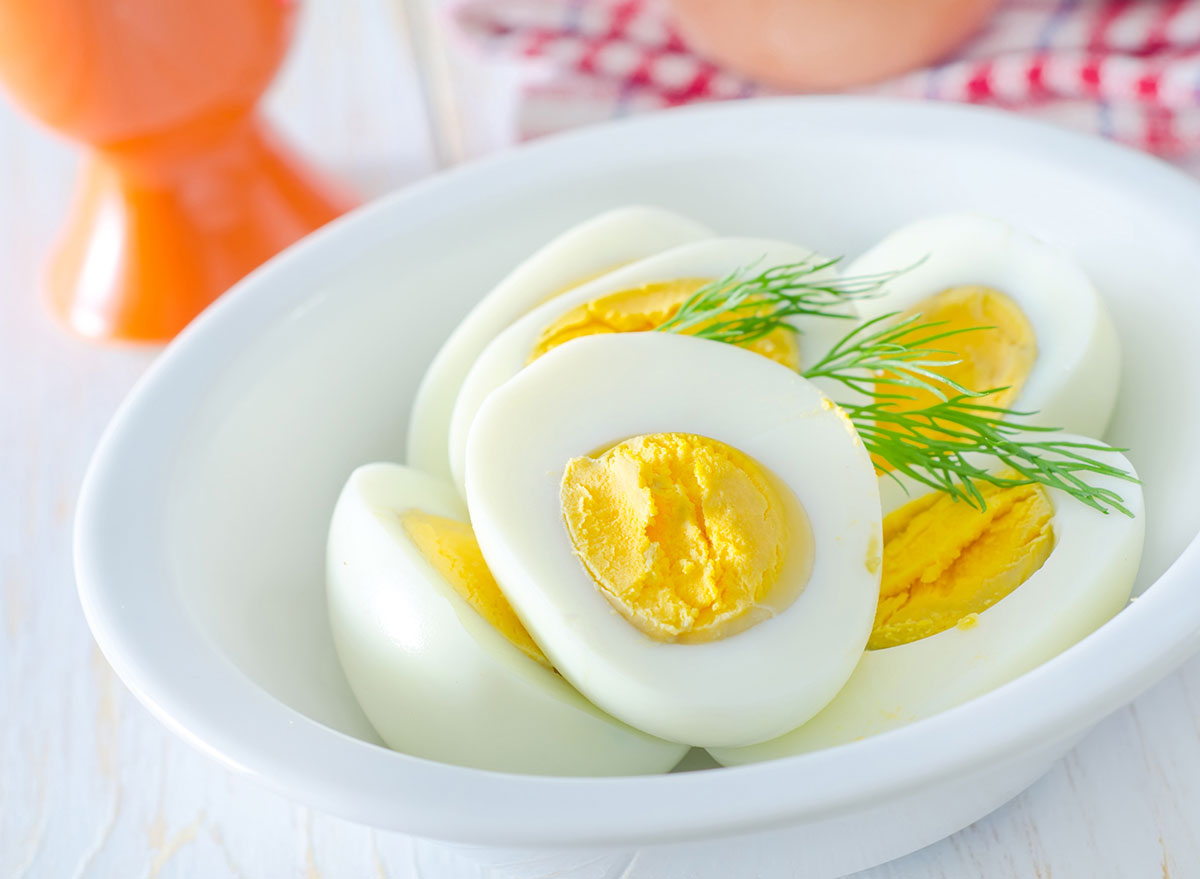
Eggs are low in calories and are a complete protein, which makes this food great for building muscle and maintaining a healthy weight. “In addition, eggs are rich in omega-3, choline, and are important for nerve function and healthy metabolism,” says Amsterdam. “They’re also rich in the antioxidants lutein and zeaxanthin, which are important for eye health.” Try these 25 Best Egg Recipes for Weight Loss if you need to shake things up beyond the egg scramble.
50s: Basil
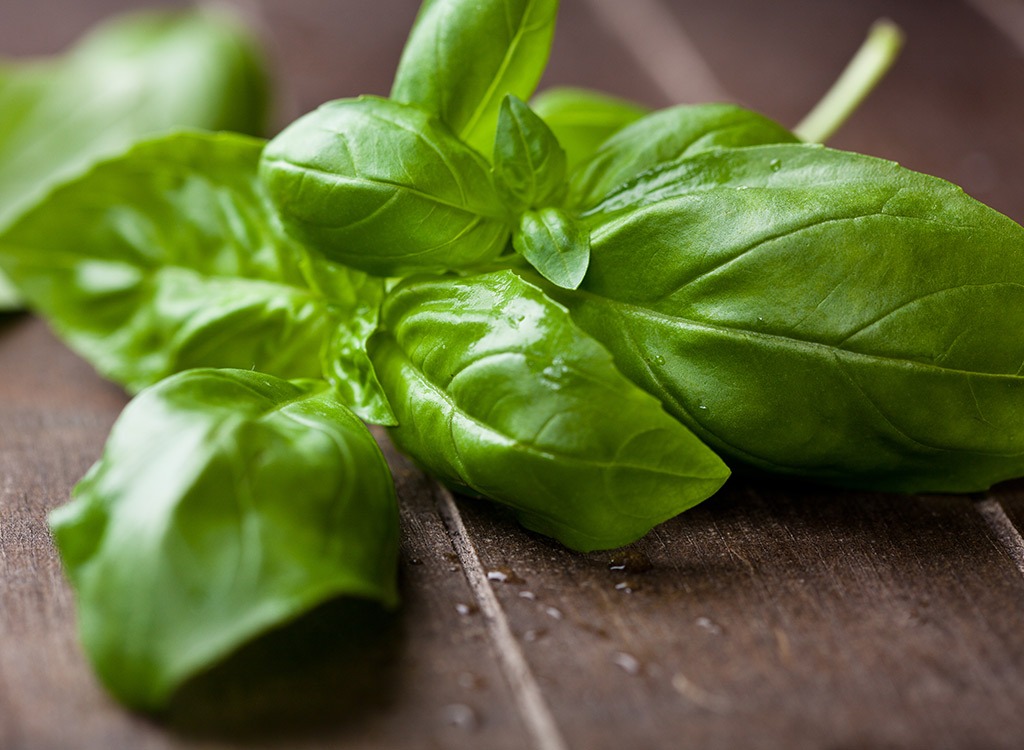
As you get older, strong bones become increasingly important. A great source to build your bones is vitamin K—and basil is rich in it. Amsterdam says to sprinkle some on salads to reduce the risk of atherosclerosis, osteoporosis, diabetes, and cancer.
50s: Brazil Nuts
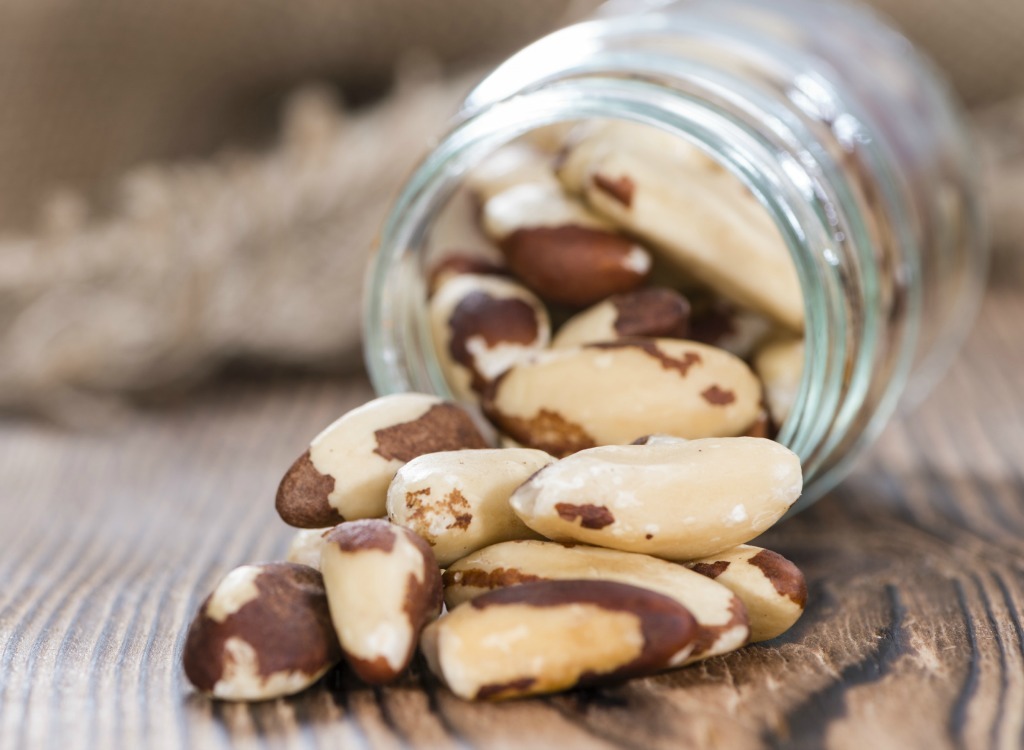
Brazil nuts are filled with vitamins and nutrients that support so many important functions as you get older. “They contain selenium, calcium, iron, copper, magnesium, manganese, potassium, phosphorus, zinc, and fiber,” says Amsterdam. “This exotic nut helps to support healthy cholesterol levels, which prevents blood clotting and, consequently, reduces the risk of heart attacks and strokes.” Plus, Brazil nuts contain vitamin A and E, which can reduce wrinkles increase skin collagen! No wonder they’re on the list of 50 Best-Ever Foods for Women!
